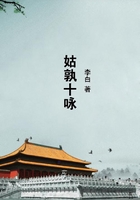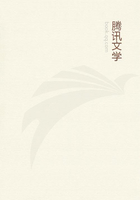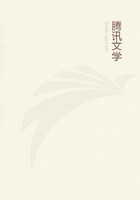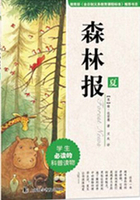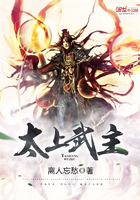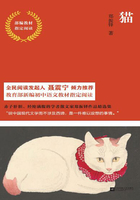Johannes Muller smiled sadly. "Who is able to say that he feels contented?" he asked. "I am, perhaps, a bad custodian, and that may be the reason why the prefect of the Imperial Library, Baron Fenish, is not on good terms with me, and profits by every opportunity to mortify me. A German savant never was an independent man, for he generally lacks the most indispensable requisite for an independent position: he generally lacks wealth."
"Then you are poor?" asked Thugut, with flashing eyes.
"I have no other means than my salary. The Muses will adorn a man, but they will not feed him."
"I will deliver you from your subordinate position," said Thugut, hastily; "you shall be independent, free, and rich. You are a fool to bury yourself, with your glory and with your pen, in the dust of old books. Life and history are calling, and offering you their metal tablets to write thereon. Write, then; write the history of our times; render yourself an organ of the age; assist us, by your writings, in preserving the government and law and order. Defend, with your ringing voice, the actions of the government against the aspersions of this would-be wise, noisy, and miserable people, and you shall have a brilliant position and an annual salary of four thousand florins. You are silent? You are right; consider well what I am proposing to you. I offer you a brilliant position. I will make you the great historian of our times. It affords you always so much pleasure to praise and commend; well, sir, praise and commend what we are doing. Assist me, at least, in mystifying our contemporaries and posterity a little, and I will reward you in the most liberal manner. A good title, a large salary, and we will, moreover, pay your debts."
"Ah! your excellency knows that I have debts, and you believe that to be the string by which you may draw me to you like an insect?" asked Muller, smiling. "To become the historian of our times is an honorable and welcome offer, and I confess to your excellency that I have already finished many a chapter of it in my head, and that I have devoted a great deal of attention to the special history of Austria. It would be agreeable to me if your excellency would permit me to recite to you a few passages from the history of Austria, as I have elaborated it in my head. This will be the best way for your excellency to obtain the conviction whether I am really able to fill so brilliant a position as your excellency has offered me, and whether my services deserve so liberal a salary."
"Well, sir, let me hear a few passages from your 'History of Austria.' I am very anxious to listen to them."
"And your excellency remembers the promise that there is to be irresponsibility and impunity for whatever will be said during this interview?"
"I do, sir, and I swear that your words shall never be repeated to any one, and that I shall only remember them when I have to reward you for them. I swear, besides, that I will quietly and patiently listen to you until you have concluded."
"I thank your excellency," said Johannes Muller, bowing gracefully.
"I should like to recite to your excellency now a chapter that I desire to write on the literature of Austria. I turn my eyes back to the days of Maria Theresa and Joseph the Second. Both of them were lovers of literature, art, and science, which both of them promoted and fostered. Joseph expelled darkness from his states and uttered the great words, 'The mind shall be free!' And the mind became free.
It became active and exalted in every art; the poets raised their voices; the learned sent the results of their studies into the world, and labored powerfully for the advancement and enlightenment of the people. The mind tore down the barriers that stupid fear had raised between Austria and the other German states, and the great poets who had lately arisen in Germany now became, also, the poets and property of Austria. Austria called Lessing and Klopstock HER poets; like the rest of Germany, she enthusiastically admired Schiller's 'Robbers,' and wept over 'Werther's Sorrows;' she was delighted with the poetry of Wieland; she learned to love the clear and noble mind of Herder, and the writings of Jean Paul admonished her to learn and to reflect. It was a glorious period, your excellency, for a young nation had arisen in Austria, and it was drawing its nourishment from the breasts of a young literature."
"And sucking from these breasts the revolutionary spirit, and the arrogance of independent thinkers," interrupted Thugut, rudely.
Johannes Muller seemed not to have heard him, and continued: "Joseph the Second died; scarcely a decade has passed, and what has this decade made of Austria? The mind has been chained again; the censor with his scissors has taken his stand again by the side of the Austrian boundary-post; and the wall severing Austria from Germany has been recreated. Every thing now has become again suspicious; even the national spirit of the Austrian, even his hatred of foreign oppression, and his hostility to foreign encroachments. In this hatred itself the government sees the possibility of a rising, and a spirit of opposition, for it sees that the people are no longer asleep, but awake and thinking, and thought in itself is even now an opposition. Every manifestation of enthusiasm for a man who has spoken of the freedom and independence of Germany is looked upon with suspicion, and the noblest men are being proscribed and banished, merely because the people love them, and hope and expect great things from them. The people, according to the wishes of government, shall do nothing but sleep, obey, and be silent; the people shall manifest no enthusiasm for any thing; the people shall love nothing, desire nothing, think nothing; the people shall have no heroes, to whom they are attached; for the glory of the heroes might eclipse the emperor, and the shouts of love sound like shouts of insurrection."
"You refer to the Archdukes Charles and John," said Thugut, quietly.

